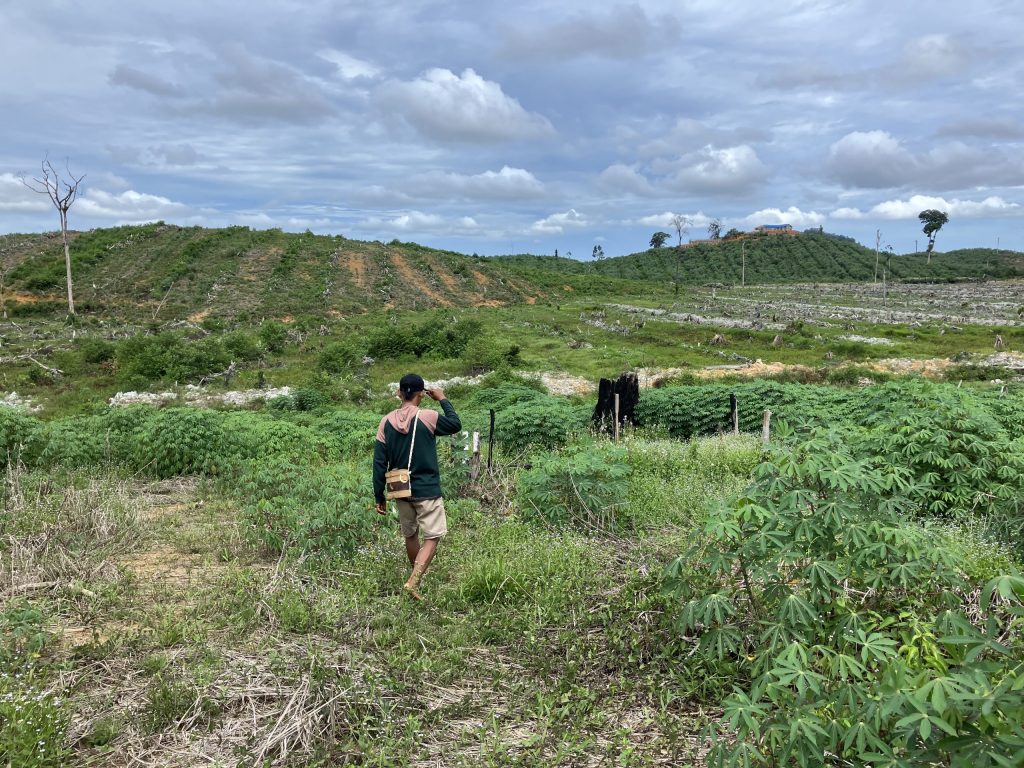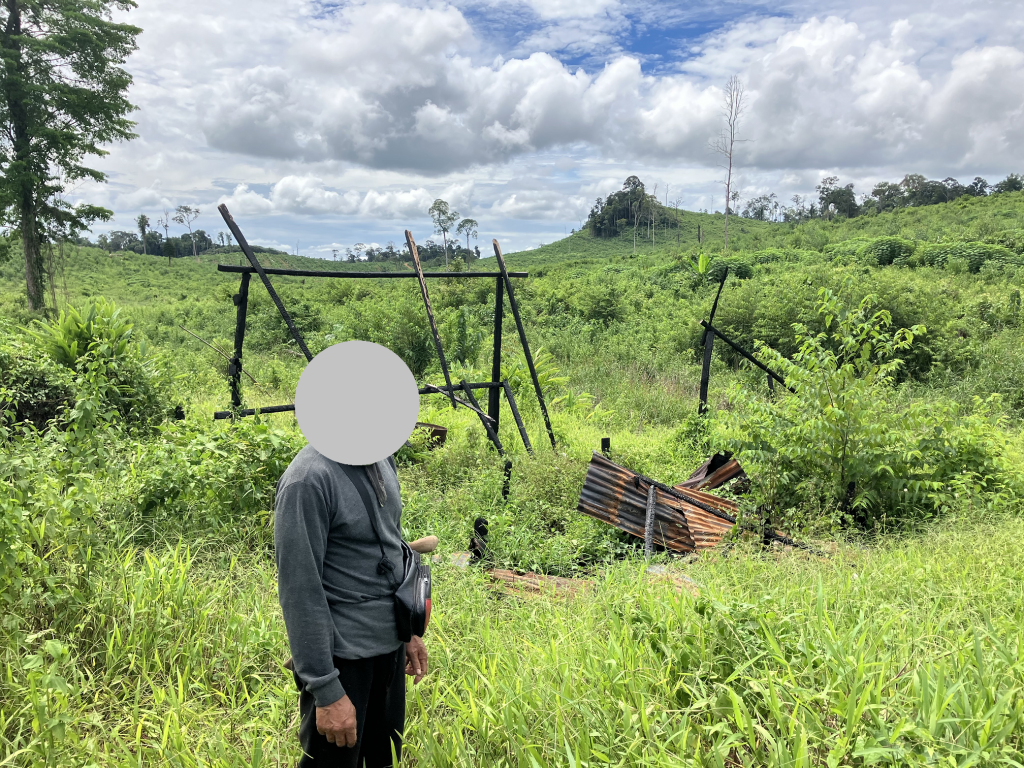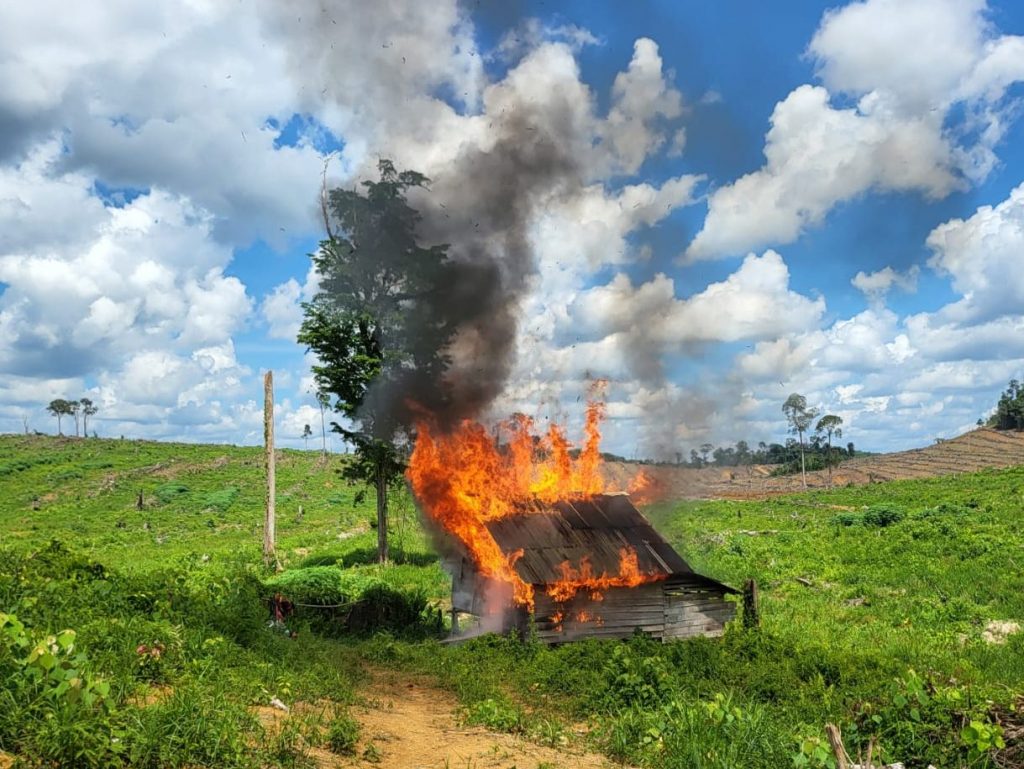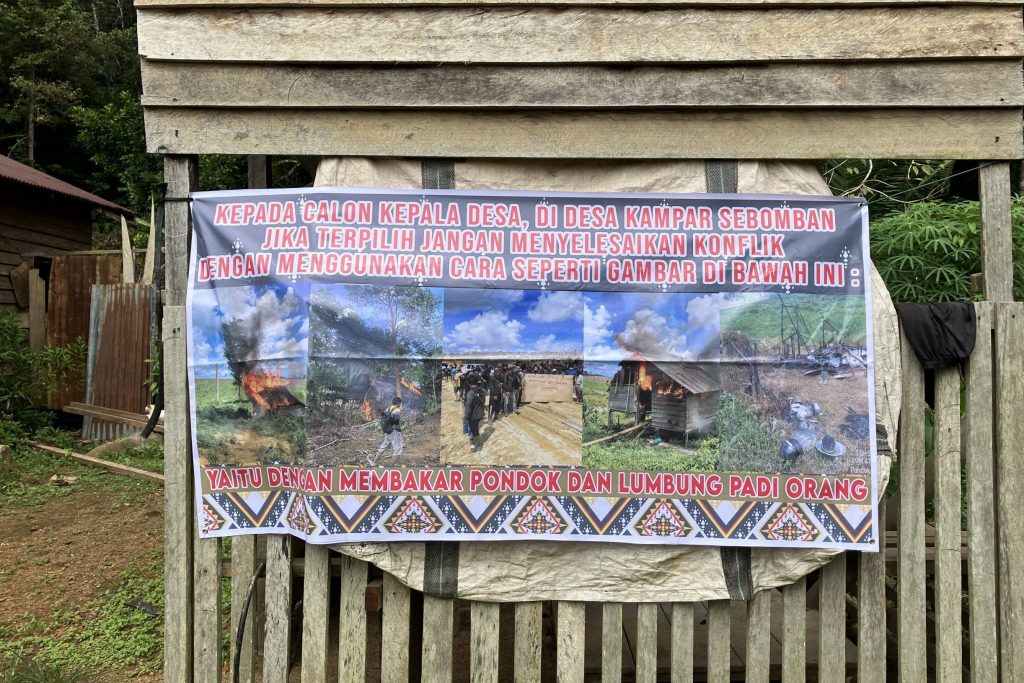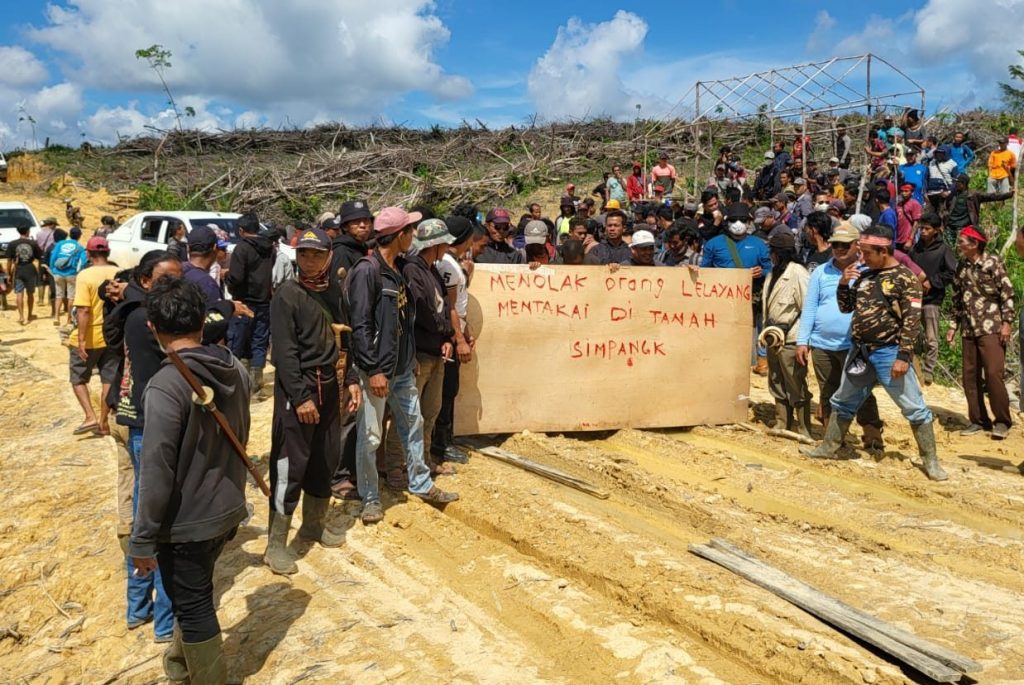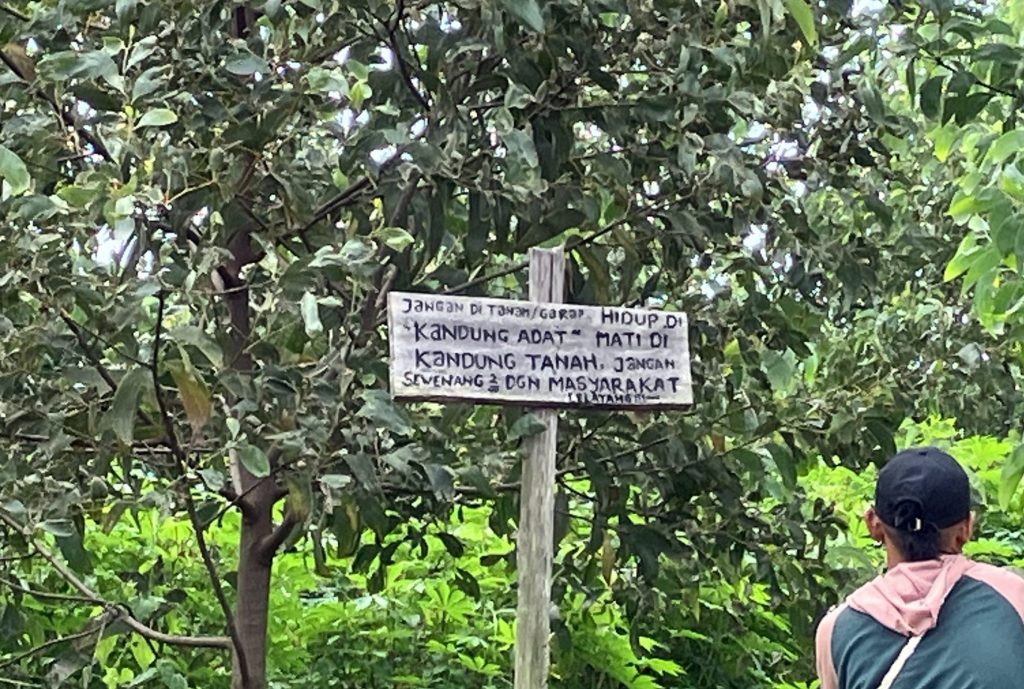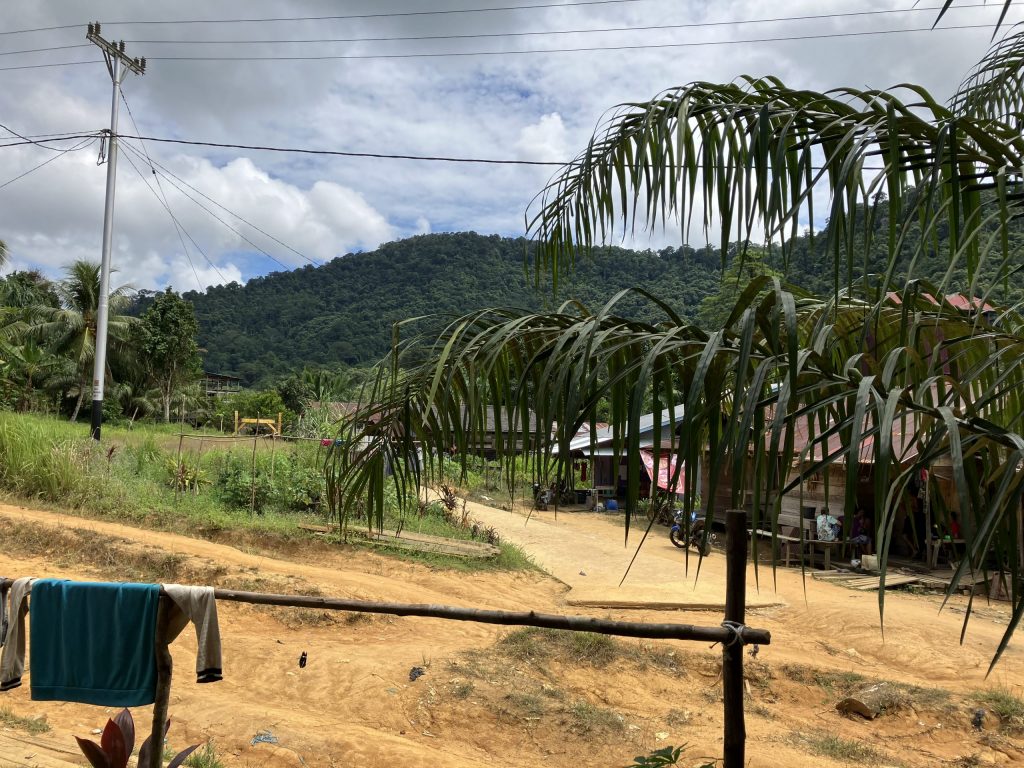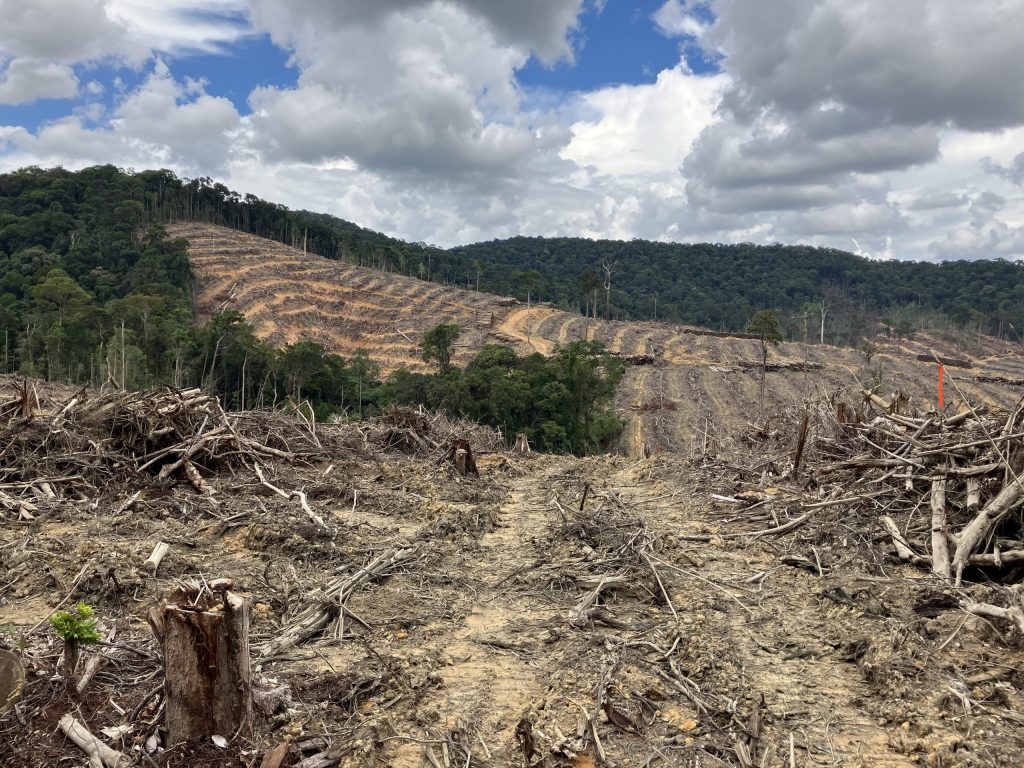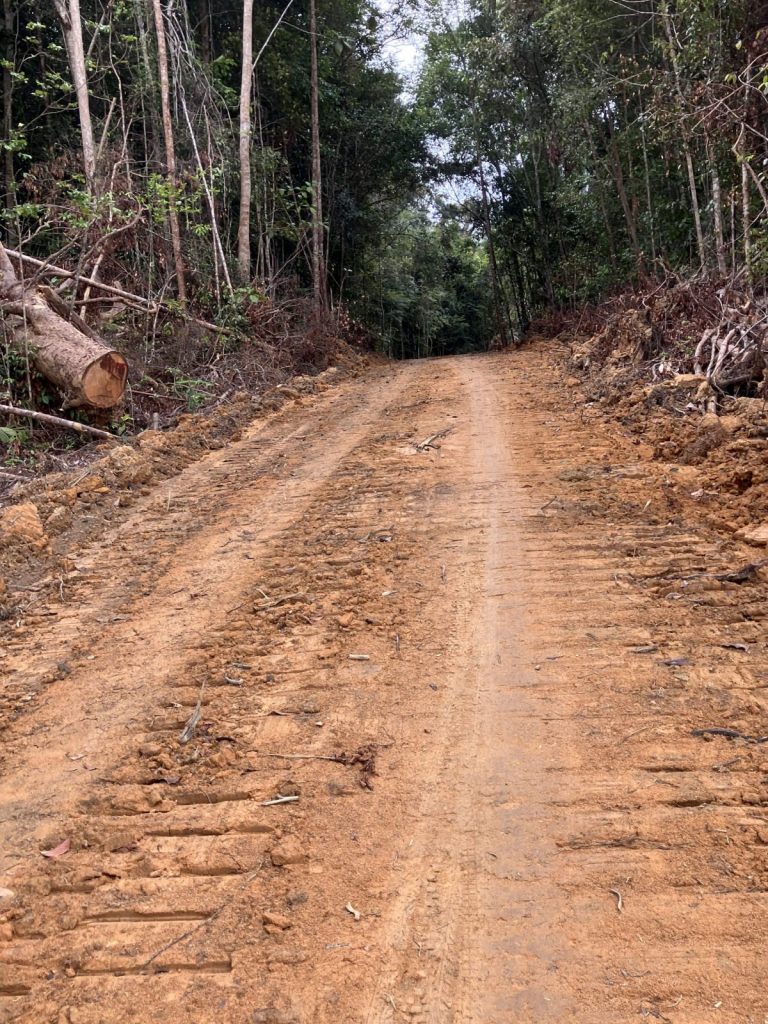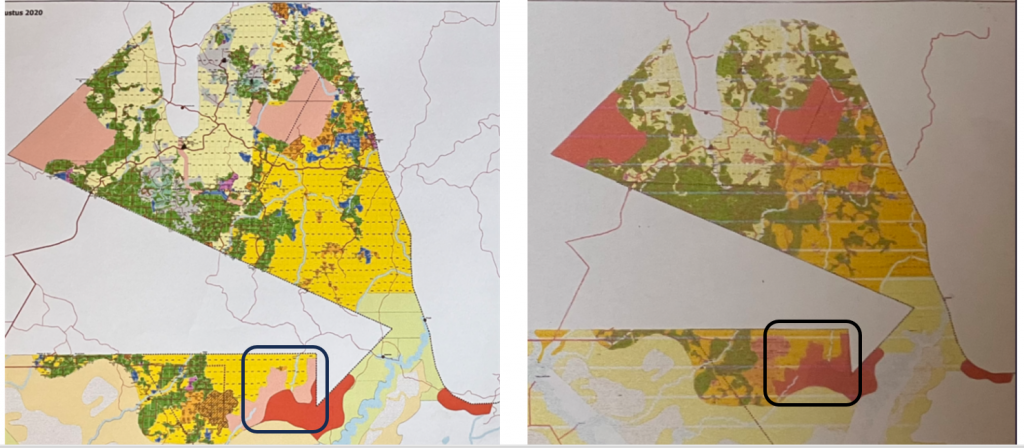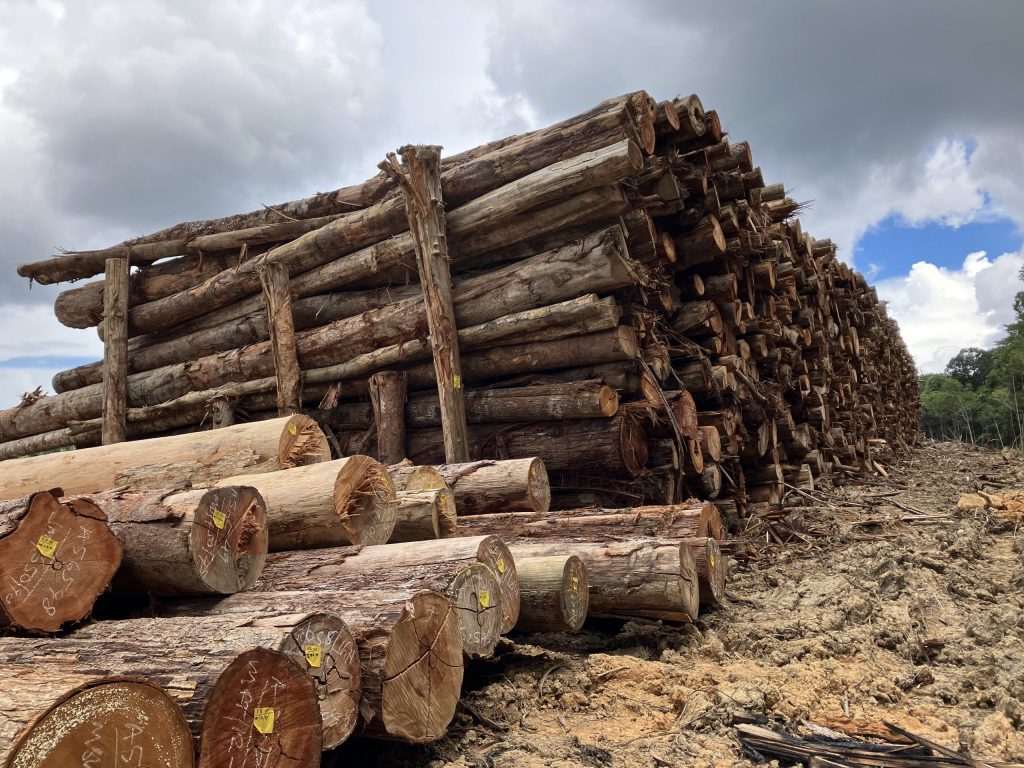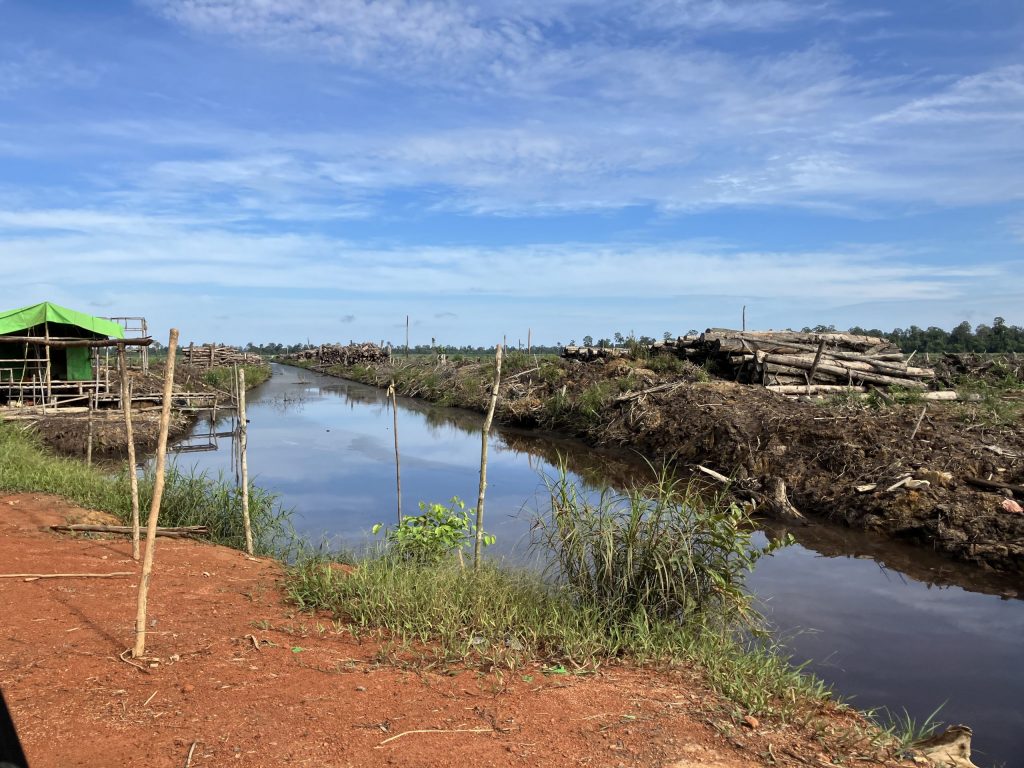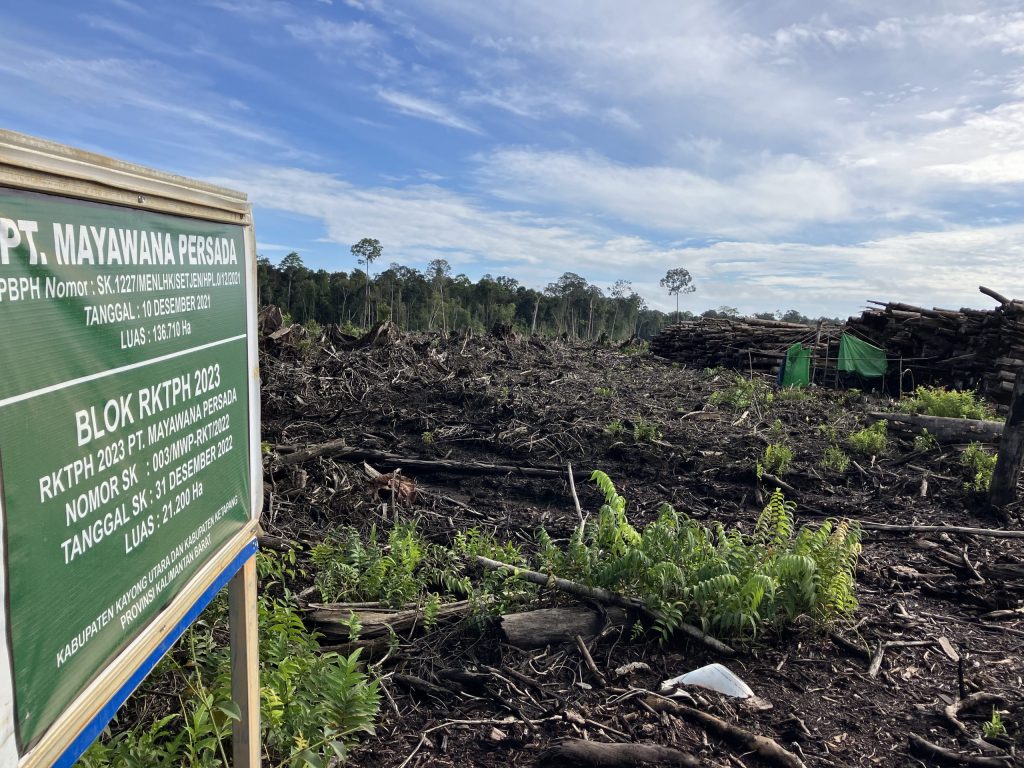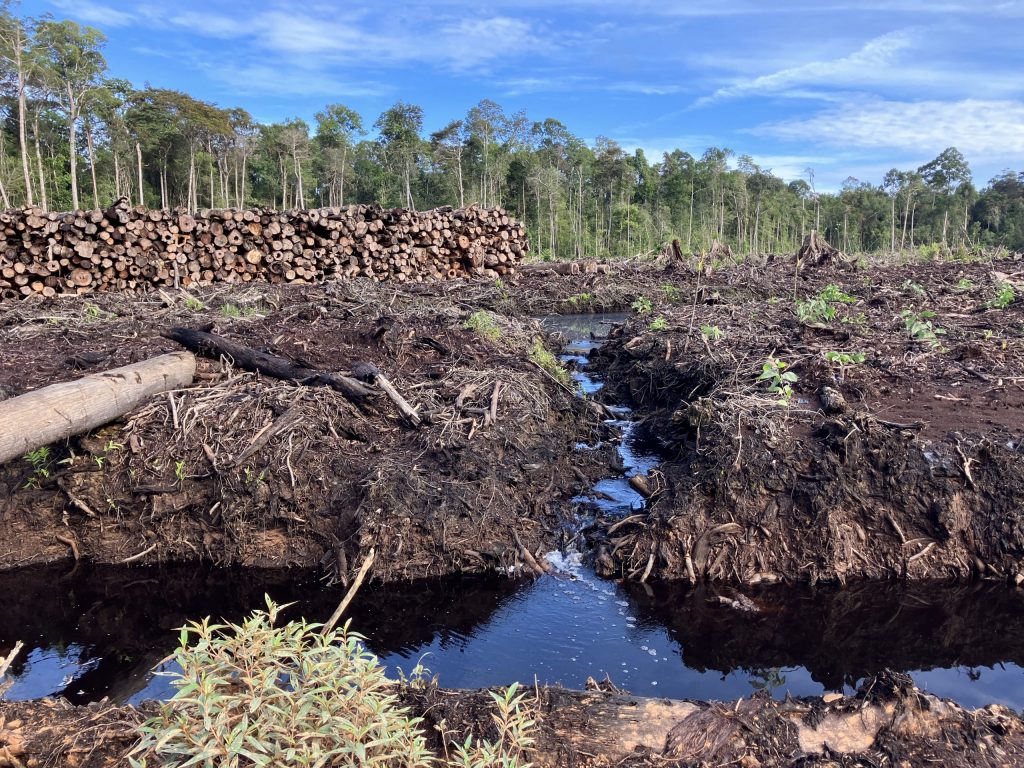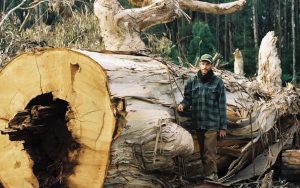Violated Indigenous Customary Lands and Serious Social Conflicts: Land Grabbing by PT Mayawana Persada in West Kalimantan, Indonesia
In recent years, forest development by industrial plantation companies without FPIC (free, prior and informed consent) to indigenous peoples and local residents has become increasingly rampant in Indonesia's West Kalimantan Province (an Indonesian territory of Borneo Island). In the past decades, the land has been ruthlessly grabbed by supplier companies of wood fiber to giant pulp mills on the island of Sumatra, and it seems that the front line of harsh land grabbing has shifted to the forest areas of Kalimantan. However, in Kalimantan, there has been a strong movement among the indigenous peoples, called Dayak, to protect their deeply rooted beliefs and traditional culture in various parts of the island. There is an ongoing social conflict between development companies and indigenous peoples, and local residents. This report provides an overview of the research conducted with local residents in June 2023.
Social Conflict: Case 1
Dusun Lelayang, Desa Kualan Hilir, Kecamatan Simpang Hulu, Kabupaten Ketapang
Fierce infighting over the boundary between two neighboring communities has been ongoing since last year. While Village "S" in located in Kecamatan Simpang Dua has already signed an agreement with PT Mayawana Persada (hereafter, MP), Dusun Lelayang (hereafter, Community "L") is complaining about MP's blatant violation of their customary rights. Since 2008, the Community residents have been growing rice, oil palm, rubber, cassava, and jengkol, as well as jackfruit and other fruits on farmland that had been incorporated into NP’s concession, which was destroyed by MP security personnel around December 2022. According to the Community’s claims, they had never transferred their customary lands, including these farmlands, to the company, and their "pondok" (farming hut on agricultural field) and farmland were unilaterally destroyed and burned without any consent or even notification. During our survey, we were guided by some Community residents who had set up protest tents inside the concession to confirm the sites of the destruction. The residents of Community "L" said, not only MP’s security personnel were involved in the destruction, but also the head of Village "S", who is alleged to have initiated the agreement process with the MP, and other residents of "S" were actively involved in the destruction. The reason for the destruction seems to be that the boundary line between the two communities has been drawn in such a way that it encroaches into the territory of Village "S" much more than it should have. The village headman claims that the land on which several communities, including Community "L" and its neighboring Community "SE" were farming is originally within the territory of Village "S", and that people of Community "L" are "migrants" who moved from another place (Kabupaten Sanggau), denying their indigeneity. MP has provided social infrastructure like church and other facilities as part of its CSR activities to those villages that have agreed with the company on land transfers. Behind the conflict, we can catch a glimpse of the company's strategy to manage the concessions (business rights land granted by the government) as they wish by cleverly creating social divisions and economic disparities among communities.
The customary land claimed by Community "L" was planted with rice and various other crops. Nowadays, the surrounding area is covered with fast-growing trees such as acacia and eucalyptus for pulping and papermaking. Area of cultivated land planted by the local people is asymmetrically much smaller. The vastness of the surrounding plantations might lead one to mistake them for "squatters" (unlawful land occupants). But the invaders, they say, are definitely Mayawana. The site of the destruction is littered with the rubble of burnt-out pondok and broken dishes, indicating that it was once an agricultural center. In one such area, three temporary huts covered with plastic are set up, and more than 10 residents of Community "L", who refused to vacate their farmland, are monitoring the activities of the company. According to them, in 2020, MP started forest development using heavy machinery in Kecamatan Simpang Hulu in Kabupaten Ketapang, then moved on to Simpang Dua, and this year expanded into Kabupaten Kayong Utara (North Kayong District).
In September 2022, there occurred a violent clash between residents of Community "L" who were trying to prevent MP from taking their land and MP’s security personnel with Village "S" people. The residents said that some MP security personnel held up knives. Several people were injured in the incident. A video showing a part of the clash is available to see on YouTube. Before and after the clash, there were two meetings held between residents of Community "L" and the company manager, "R", to resolve the dispute, but both meetings ended in a disagreement.
In response to the complaints of Community "L" residents and others, a local NGO, West Kalimantan branch of the Indonesian Environmental Forum (WALHI Kalibar),organized a demonstration on June 5, 2023 in front of Environment and Forestry Service West Kalimantan Province (Dinas Lingkungan Hidup dan Kehutanan Kalbar), asking Environment and Forestry Ministry (Kementerian Lingkungan dan Hidup dan Kehutanan: KLHK) to cancel the concession. They demanded four items including cessation of native forest logging.
- Abandoned farmland surrounded by acacia plantation ⓒJATAN
- Community "L" resident whose pondok was burned ⓒJATAN
- Pondok set on fire ⓒGopemba Belantara
- Counter message to village head of "S" seeking re-election. "… if elected, does not resolve conflicts by exercising violence" ⓒJATAN
- Boundary dispute between communities turned into violent conflict ⓒGopemba Belantara
- Message Board inside Concession: "Life is conceived by adat, death is conceived by land" ⓒJATAN
Social Conflict: Case 2
Dusun Gensaok, Desa Kualan Hilir, Kecamatan Simpang Hulu, Kabupaten Ketapang
In Kecamatan Simpang Hulu, there is an indigenous customary forest (hutan adat) called Tonah Colap Torun Pusaka (TCTP), whose customary rights, including land rights, are recognized as belonging to the local indigenous community Benua Kualan Hilir (Nomor Surat: 01/LPA/MAKM/12/02). Since then, it has been carefully protected in accordance with strict adat (customary) law. TCTP area, which is hutan lindung (water catchment forests), provides an essential asset for the livelihood of the local people. They have strict rules even for the cutting of a single tree inside TCTP. A freestanding mountain named Bukit Sabar Bubu, part of TCTP, has been traditionally managed as a sacred mountain that provides various blessings to the residents of Dusun Gensaok. However, just on the other side of the mountain is a vast MP concession. In June 2020, MP began clearcutting the native forest in Bukit Sabar Bubu, which continued until May 2023. We visited the logging site with a group of the residents. After passing through a logging road penetrated by bulldozers close up to the edge of Gensaok community area, we came upon a bleak area of land that was painfully bare in comparison to the surrounding forest. The piles of logged timber smelled like freshly cut trees. Groundwater would be severely affected in the future. There are also concerns about the environment for the rare animals that have been displaced. What the residents fear more than anything else is destruction of their customary rights themselves by losing Bukit Sabar Bubu, which has been the foundation of their lives, beliefs, and culture for generations. In June 2023, Aliansi Masyarakat Adat Nusantara (AMAN) and its umbrella organization, Barisan Pemuda Adat Nusantara (BPAN) issued a strongly worded statement calling on MP to respect indigenous customary rights and immediately stop logging.
- Bukit Sabar Bubu viewed from Gensaok community ⓒJATAN
- Bukit Sabar Bubu with its forest peeled off ⓒJATAN
- Logging road penetrating close to Gensaok community area ⓒJATAN
- Bukit Sabar Bubu, part of TCTP, has shrunk in the last one year (red highlighted area within black square) ⓒJATAN
- Piles of freshly logged trees ⓒJATAN
PT Mayawana Persada
PT Mayawana Persada is an industrial plantation company that breeds, plants, and harvests acacia and eucalyptus, species used for pulping and papermaking, under the umbrella of Alas Kusuma, one of Indonesia's giant timber conglomerates. In 2010, MP obtained an Indonesian Industrial Plantation License (IUPHHK-HTI, hereinafter HTI) (SK. 723/Menhut-II/2010). The concession area is 136,710 hectares in Ketapang and North Kayong regencies in West Kalimantan, and the concession period is estimated to be 60 years. Approximately half of the concession is located on peatland. MP "cleared almost 3,000 ha of forest within its concession" from January to March 2023. Alas Kusuma owns more logging companies holding natural forest concession licenses (IUPHHK-HA) than HTI companies, and as of 2010, Alas Kusuma owned the second largest native forest logging concession area with 1,157,700 hectares in Indonesia after PT Kayu Lapis Indonesia with 1,445,300 hectares.
A large volume of plywood products produced by Alas Kusuma-affiliated companies is flowing into Japanese building material market. Plywood manufactured by Alas Kusuma group companies, FSC-certified logging companies, PT Sari Bumi Kusuma and PT Suka Jaya Makmur is imported by "Daiken Corporation, Sumitomo Forestry, Itochu Kenzai Corporation, Japan Kenzai, SMB Kenzai, and Sojitz Building Materials". Apart from this, it has been suggested that another Alas affiliated company, PT Harjohn Timber is receiving native forest timber as raw material for plywood, harvested by MP. PT Harjohn Timber holds FSC CoC certification, provides "a credible assurance that products which are sold with an FSC claim originate from well-managed forests". According to Indonesian trade data, PT Harjohn Timber's FSC-certified plywood products are handled by not only timber trading companies but building material companies such as Yuasa Lumber, Omni Tsuda and Noda Corporation. In the case of plywood imported from Indonesia, there are only a limited number of factories capable of manufacturing urethane-coated plywood, which is used preferentially for foundation work at construction sites in Japan, and it is said that Alas Kusuma-affiliated factories do not have coating facilities. It is likely that PT Harjohn Timber's plywood is used for structural plywood, floor base board, and furniture materials.
- Peat swamp deforestation inside MP concession 1 ⓒJATAN
- Peat swamp deforestation inside MP concession 2 ⓒJATAN
- Peat swamp deforestation inside MP concession 3 ⓒJATAN
Contact
Akira Harada
Email: harada[α]jatan.org
Please replace [alpha] with @.
※Japanese Version
"侵害される先住民の慣習地と深刻な社会紛争ーインドネシア・西カリマンタンのマヤワナ・ペルサダ社による土地収奪"
≪References≫
【2022 JATAN Webinar】"Land Grabbing and Deforestation associated with Agricultural and Forestry Production: Malaysia (Sarawak) and Indonesia (West Kalimantan)"
【2022 Field Report】Land Grabbing and Deforestation associated with Agricultural and Forestry Production: Malaysia (Sarawak) and Indonesia (West Kalimantan)

